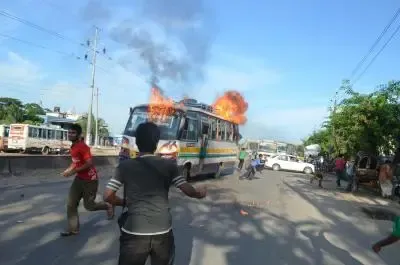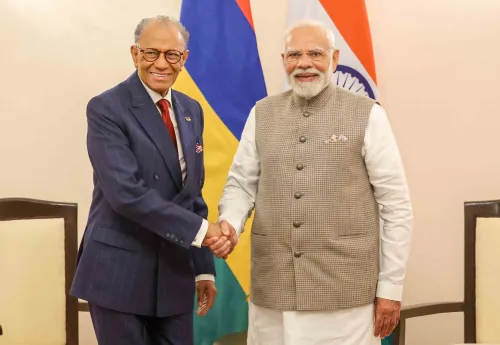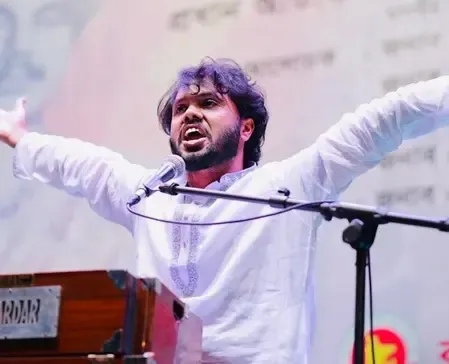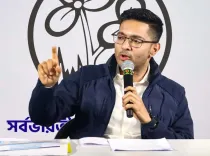How is India reaffirming its commitment to ASEAN centrality at the East Asia Summit meeting?

Synopsis
Key Takeaways
- India's commitment to ASEAN centrality was reaffirmed at the 13th East Asia Summit.
- Focus on digital transformation and sustainability as key priorities.
- Strengthening economic ties with New Zealand, Cambodia, and Canada.
- Opportunities for AI collaboration discussed with Malaysian entrepreneurs.
- Resilient supply chains and trade agreements were emphasized.
Kuala Lumpur, Sep 25 (NationPress) Jitin Prasada, the Minister of State for Commerce and Industry, reasserted India’s dedication to ASEAN centrality, digital transformation, and sustainability during the 13th East Asia Summit (EAS) Economic Ministers’ Meeting held in Kuala Lumpur, Malaysia, on Thursday.
The minister highlighted India's call for deeper and mutually beneficial economic integration, resilient supply chains, and progress on ASEAN-India trade agreements, aimed at fostering inclusive growth and regional stability.
Prasada also engaged in fruitful discussions with counterparts from New Zealand, Cambodia, and Canada on the sidelines of the event, underscoring India’s strengths and new opportunities. The discussions focused on enhancing trade, technological collaboration, supply chain resilience, and deeper partnerships.
Later that evening, the visiting Indian minister connected with prominent business chambers in Malaysia. The Malaysia-India Business Council (MIBC), representing the Malaysian Indian business community, was led by Tan Sri Kuna Sittampalam, while the Consortium of Indian Industries in Malaysia (CIIM), representing Indian businesses, was chaired by Datuk Umang Sharma.
"CIIM and MIBC together signify the robust and growing business relationship between India and Malaysia," Prasada shared on X.
Earlier, Prasada had an engaging dialogue with AI entrepreneurs in Malaysia, exploring opportunities for Malaysian AI industry players within India’s AI narrative, as well as ways to enhance the India–Malaysia partnership under the auspices of the Malaysia-India Digital Council.
During his visit to MIMOS Berhad, the national Research and Development center of Malaysia, the Minister observed their groundbreaking work in semiconductors, AI, and advanced technology. He stressed the opportunities for greater collaboration between India and Malaysia.
Meanwhile, on Thursday, the Secretary-General of ASEAN, Kao Kim Hourn, participated alongside other ministers in the 13th EAS Economic Ministers’ Meeting in Kuala Lumpur.
"The meeting exchanged insights on the global and regional economic landscape and discussed collaborative approaches among EAS member countries to strengthen cooperation in new and emerging sectors to promote Environmental, Social, and Governance (ESG)-driven growth in the region," noted the official ASEAN account on X.
Earlier this month, India expressed supportive engagement for the preparations concerning the upcoming 20th EAS. Representing India at the EAS Preparatory Senior Officials’ Meeting (EAS Prep-SOM) in Malaysia's Port Dickson, Ministry of External Affairs (MEA) Secretary (East), P Kumaran, conveyed India's "constructive support" for the preparations leading up to the summit.
The East Asia Summit process was launched in 2005 with the first summit held in Kuala Lumpur. Initially, the EAS included 16 participating nations: ASEAN member states, Australia, China, India, Japan, New Zealand, and the Republic of Korea. The United States and Russia joined during the 6th East Asia Summit in Bali, Indonesia, on November 19, 2011.










